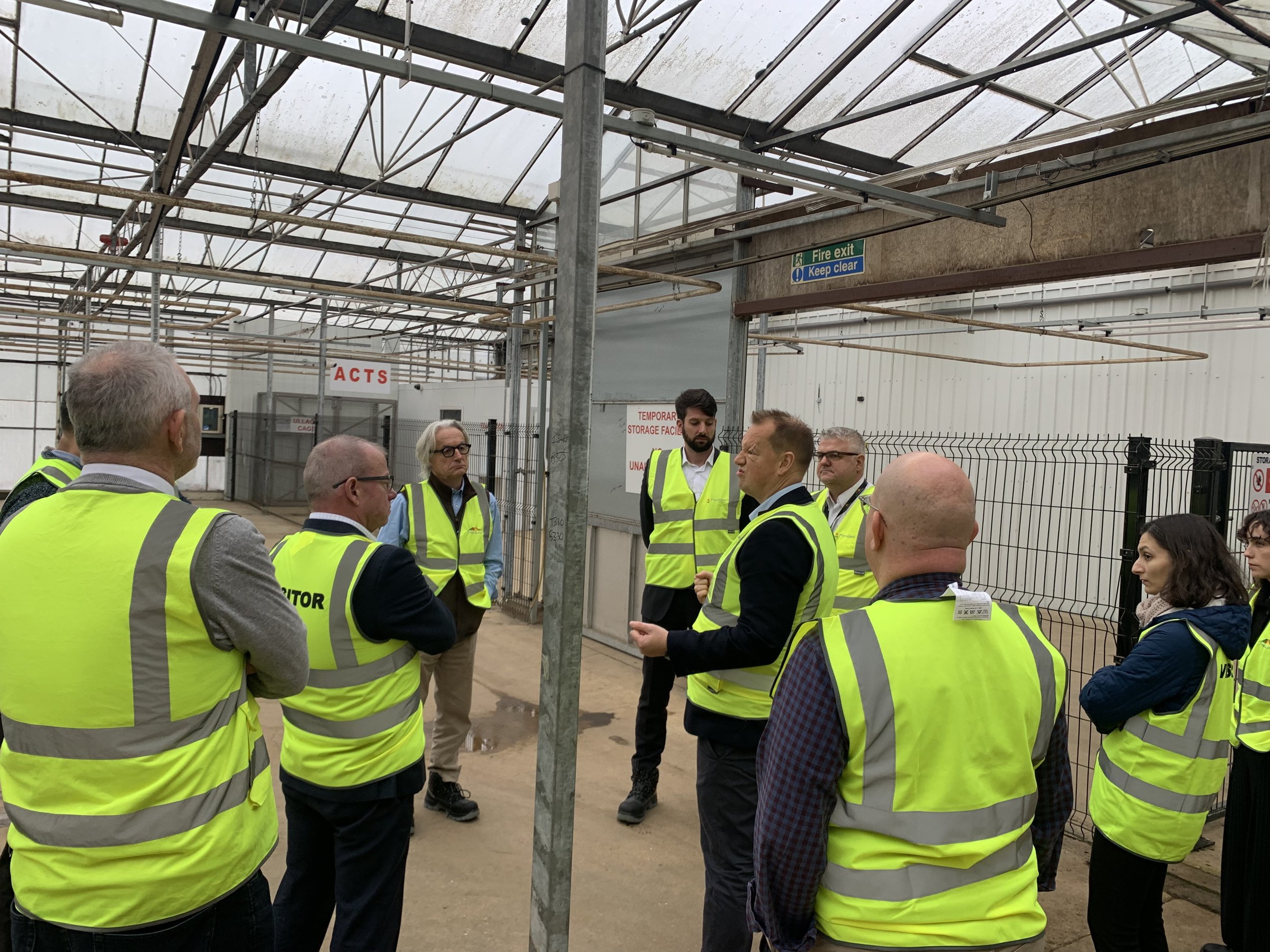SITE VISIT: FreshLinc haulage and logistics
On 27th November 2023, the UK Trade and Business Commission team went on a site visit to FreshLinc haulage and logistics in Spalding, Lincolnshire.
The introduction of the new Border Target Operating Model (TOM) from the end of January next year will see import checks introduced on products coming into the UK from the EU of plant and animal origin.
As a logistics and haulage business, a huge number of FreshLinc's suppliers are affected by the changes, and FreshLinc is having to navigate the new regulatory landscape on their behalf. With the introduction of the TOM repeatedly pushed back, coping with uncertainty and shifting expectations has been challenging for FreshLinc.
The UKTBC team attended FreshLinc to find out more about the challenges they're facing, and what they need from Government to ensure that the introduction of the TOM does not negatively affect their business.
Commissioners met with:
DAVE MARTIN, General Manager Customs & European Operations
JONNY BROSTER, General Manager FloraLinc
ROBIN HANCOX, Executive Chairman
LEE JUNIPER, Chief Executive Officer
SHANE BRENNAN, Outgoing Chief Executive, Cold Chain Federation



